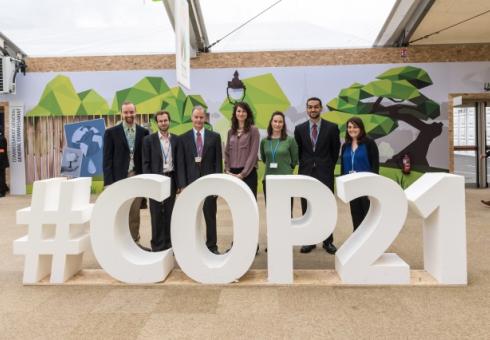Joint Program In the News
Andrea Thompson | Climate Central
In case you haven’t heard, Washington, D.C., and other parts of the Mid-Atlantic region, are about to get walloped by a ...
The Economist
WHEN Egyptian politicians discussed sabotaging the Grand Ethiopian Renaissance Dam in 2013, they naturally assumed it was a private meeting. But amid all the scheming, and with a big chuckle, Muhammad Morsi, then president, informed his colleagues that their discussion was...
Benefits from international regulations may double those of domestic policy
Valerie Karplus and Michael Davidson | MIT Joint Program
After two weeks of negotiations, the Paris climate talks that ended on December 12 delivered the foundations of a post...
MIT events throughout climate talks underscore Institute's global perspectives and partnerships
Posted by Michael Davidson and Valerie Karplus on Dec 11, 2015
From the Paris Climate Negotiations
National goal-setting—an expected key outcome from the Paris climate talks currently underway—is a common fixture of policy-making in China and...
Cassie Martin | Oceans at MIT
Navigating the current U.S. political climate can be tricky business, especially when it comes to science policy. With Congress divided more than ever on numerous important issues, including climate change, it’s important for legislators to have access to...
Kelsey Damrad | Civil and Environmental Engineering
Amid a changing climate, population growth, rapid development, and pervasive urbanization, an unprecedented threat to the world’s food and water supply is more apparent than ever before. In fact, it is predicted that 70 percent...
Includes commentary by John Reilly and climate change calculator based on methodology co-developed by Adam Schlosser
David L. Chandler | MIT News Office
Melanie Kenderdine, as the first executive director of the MIT Energy Initiative (MITEI), helped to launch an international program to increase women’s participation and leadership in the energy field called ...










